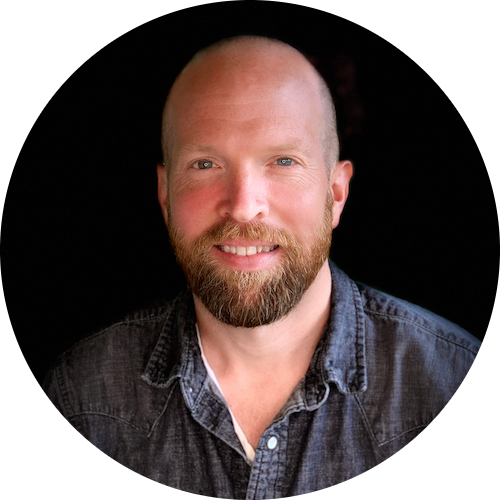Hi Jeremiah! Thanks for sharing your story with us. You studied at Code Fellows to make a recent career pivot. What you were doing before the program, and what prompted your desire to change careers?
I was a bartender for 8 years before deciding to go to Code Fellows. I was working in a Microsoft building and spoke to many engineers while working lunches and felt inspired to start a career in tech.
How did you first hear about Code Fellows?
A friend of mine suggested Code Fellows after I complained about the cost of another local coding boot camp. After doing some research, I decided to apply.
Why did you decide to study coding?
I felt that if I learned how to code, I would be able to leverage the combination of my technical ability and my empathetic passion for people to create great programs.
What courses did you take?
I tested into Code 301 then I continued on to take Code 401: Full-Stack JavaScript.
How did you decide which programming language you wanted to study?
I chose the language that I felt would be a great foundation for me. I intend to learn more languages, so starting with a good foundation was important to me.
Do you feel like learning JavaScript first has been the foundation you needed?
I think JavaScript was a great foundation for me because it is such a powerful and globally used language. By learning JavaScript and the MEAN stack, I was exposed to front-end and backend development. More importantly, I learned how to learn.
You recently did quite well in a hackathon! Tell us about that experience.
I did a hackathon for the first time at T-Mobile. I didn’t know what to expect but it was a great experience. We were presented with real like problems and were instructed to create a solution using IOT (internet of things). We chose from a list of hardware and created a program that would solve one of the issues. I wasn’t familiar with the hardware but I know Node and APIs, which were key to getting the data we needed and producing a great product. More important than technical knowledge, I have the ability to collaborate with different people. That was one of the great things I learned at Code Fellows, and it’s relevant today in my career. The PowerPoint presentation didn’t work for our pitch, but we still placed second and I really enjoyed the experience.
What do you do in your role at Microsoft?
Now I work as a Cloud Engineer for Azure’s Top 100 clients. I take cases and help troubleshoot issues with customers until we find solutions by providing support through chat and tickets, improving customer experience throughout Azure and supporting various technologies in the cloud environment.
Sounds like the role combines your technical skills and your interpersonal skills—what does the technical side of the role involve?
I am responsible for providing customers with solutions to technical issues that are Azure-related. This includes re-creating issues so that I can walk the customer through solutions step by step. I also work on building internal tools to help support engineers find solutions faster.
What did your job search look like?
My job search involved social events where I could tell my story and speak about my resilience and drive. I prepared my verbal resume when I attended meetups and other events based around technology. I leveraged LinkedIn to make personal connections while applying online to places as well. I applied to many places online, but mainly my job search was telling my story to give potential employers an idea of what kind of person I was. My resume doesn’t tell my story as good as I can. This is how I’ve landed my roles.
What’s been the most surprising thing about your new career?
One of the most surprising things is that I feel like I’ve never been hired based off what I know. I’ve always been hired based on what I’m willing to learn or how I can contribute to the culture of the workplace.
What did you learn at Code Fellows that you’re finding the most valuable now?
I learned how to figure it out. I learned that there will be obstacles because none of it was easy, but it’s not about knowing it all, it’s about knowing how to learn it. In any arena, knowing how to leverage the tools you have is a key to survival.
The tech industry is known for not being very diverse. Did that influence your decision or approach at all, as you changed careers?
No. Diversity in tech wasn’t something I was thinking about until after I got a job in tech and found it hard to feel like I belonged. My approach was to find out how I can find my own lane in such vast industry. Having to adapt to new environments is a constant theme in my life so my initial mindset was to learn how I fit.
Any advice for other people of color who are intimidated by the lack of diversity?
I feel like you have to be and create the change that you want to see. Be vocal and find allies in the tech industry who share the same values you have.
If someone was considering attending Code Fellows, what would you tell them?
Going to Code Fellows is going to prepare you for so much more than just a career in tech. The lessons you learn will help you identify your personal strengths and weaknesses. You will be challenged to improve and before you know it, you will be a skilled developer with the ability to collaborate seamlessly, write clean code, and understand concepts key to your personal success.
Thanks, Jeremiah!
Feeling inspired by Jeremiah’s story? Spend a day with us to find out if a career in tech is right for you! See upcoming Code 101 workshops »

